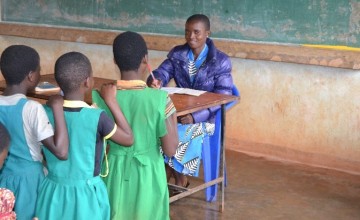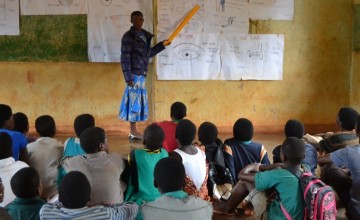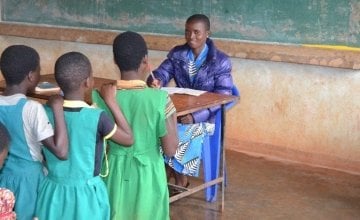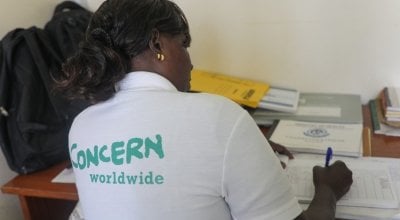
Read our 2023 annual report

Knowledge Hub
The right to learn in Malawi

Learn how a community in Malawi changed the educational environment at their school and welcomed the first female teacher in eight years – ensuring a more inclusive and equitable quality of education for all.

In 2016, the Mpata Primary School in the district of Phalombe in Southern Malawi, was experiencing drastic dropout rates among its female students. The school only had male teachers, and had been without a female teacher for over eight years. Eventually however, the local community came together to improve the educational environment in their local school.
A male dominated school
A key challenge for the community in Phalombe was that Mpata Primary School only had male teachers. The school had been without a female teacher for over 8 years.
It’s been proven that a lack of female teachers in rural primary schools demotivates female students from attending, and remaining in school as there are no clear role models for them to look up to. Also, when girls start to experience menstruation, they can often feel embarrassed and think that they have no one to go to for guidance. More worryingly, reporting gender based violence, especially of a sexual nature is not easy for girls to do when speaking to a male teacher.
The Phalombe community made a collective decision to address the lack of gender balance and came together to create a change within their education system.
A collective approach
With the help from Concern, committee meetings were held to engage key policy holders at community level to successfully advocate and lobby for a female teacher at their school. This in turn strengthened the collaboration between community groups and schools in responding to sexual and reproductive health issues and school-related gender-based violence.
Welcoming Madam Mercy Mwadula

As a result, in 2017, Mpata Primary School gained its first female teacher in eight years and with it, a series of incredible knock-on effects. The female student dropout rate decreased significantly from seven in 2016 to just two in 2017. More female students finished their standard eight studies, increasing from 24 in 2016 to 33 in 2017 and school readmissions saw an increase with just one in 2016 to four in 2017. The head teacher of Mpata primary school, Mr Chikwewo had this to say about the positive change:
I am so excited for the girls in this school, after eight years with no female teachers, we are proud to have a female member of staff. Our girls now have someone to look up to as a role model and also someone to go to for advice, especially for our pubescent girls, it is not often easy for girls to open up to us males!"
Lastly and most importantly, having a female teacher present created a much better learning environment for the female students and allowed them to discuss any personal and sensitive issues more openly. In Madam Mercy Mwadula’s own words she says:
I am happy to be part of the change that the girls at this school will see and that they have been looking forward to for so long. Being a woman myself, I understand what the girls must have been going through without a female teacher."
Hearing from the students themselves

Two students from Madam Mercy’s class describe what this instrumental change means for them. Tapiwa Boksi, a 13 year old standard six student speaks of how it now gives her hope to achieve her own dreams:
Now I know it’s possible for a woman to become successful, and with Madam Mwadula, I know I will achieve my dream of becoming a teacher."
While a shy 16 year old standard eight student speaks of how it has created a more comfortable learning environment for herself:
Sometimes menstrual onset can start while in class and it was very difficult to tell a male teacher to allow you to go home early or to ask for time to change sanitation pads. With Madam Mwadula, all we have to do is meet her at break time and she can help."





